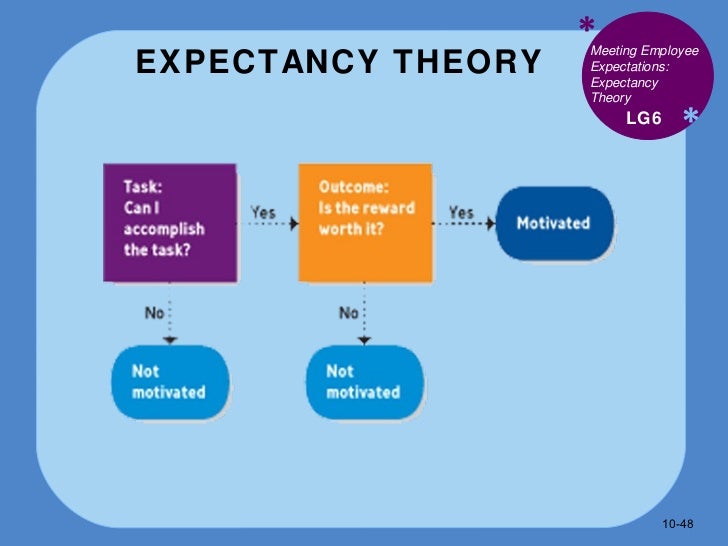

Expectancy theory is classified as a process theory of motivation because it emphasizes individual perceptions of the environment and subsequent interactions arising as a consequence of personal expectations.The theory states that individuals have different sets of goals and can be motivated if they believe that. 'Although the theory is not 'all inclusive' of individual motivation factors, it provides leaders with a foundation on which to build a better understanding of ways to motivate subordinates' (AETC, 2008). This theory provides the idea that an individual's motivation comes from believing they will get what they desire in the form of a reward. This has a practical and positive potential of improving motivation because it can, and has, helped leaders create motivational programs in the workplace. In other words, it can help explain why a person performs at a particular level. 'Expectancy theory proposes that work motivation is dependent upon the perceived association between performance and outcomes and individuals modify their behavior based on their calculation of anticipated outcomes' (Chen & Fang, 2008). The idea with this theory is that people are motivated to do something because they think their actions will lead to their desired outcome (Redmond, 2009). Vroom, Expectancy Theory provides an explanation of why individuals choose one behavioral option over others.


Expectancy Theory OverviewThe Expectancy Theory of Motivation is best described as a process theory.


 0 kommentar(er)
0 kommentar(er)
